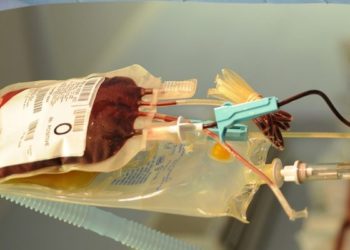Improvement in diet quality linked to decreased all-cause mortality
1. Dietary quality, scored against three well validated dietary rubrics, as well as all-cause mortality were tracked in a large cohort of patients for periods ranging from 8 to 16 years.
2. A 20-percentile increase in diet-quality scores (across all three rubrics) was associated with a reduction of 8-17% in the risk of death from any cause over the 12-year period of 1986 to 1998.
Evidence Rating Level: 2 (Good)
Study Rundown: Prior studies have supported a link between improved diet quality over time and reduced risk of death. In this large prospective cohort study, the authors used data from the Nurses’ Health Study and the Health Professionals Follow-Up Study to investigate this epidemiologic linkage. In a large sample, the authors report that participants with improvements in diet quality based on three dietary measures over time showed significant reductions in risk of death from all causes or from cardiovascular causes. There were also significant benefits seen in all-cause mortality among participants who had the greatest improvement in diet quality compared to those who had a relatively stable diet quality. Results were consistent over follow-up periods ranging from 8 to 16 years, with greater benefits accruing over longer periods of follow-up. This study derives its strength from its large size, length of follow-up, and the use of well validated dietary recall tools; the results are rendered more robust by their relative consistency across dietary measures. Drawbacks, as with other nonrandomized studies, include the fact that residual confounding cannot be excluded; furthermore, generalizability of the results is limited by the homogenous population, which was largely white and well educated. Overall, these results are supportive of dietary recommendations that small but durable changes in diet habits are likely associated with a broad range of health outcomes.
Click to read the study, published in NEJM
Relevant Reading: Dietary patterns: from nutritional epidemiologic analysis to national guidelines
In-Depth [prospective cohort]: This prospective cohort study drew on participants from The Nurses’ Health Study and the Health Professionals Follow-Up Study. Exclusion criteria included those with a history of cardiovascular disease or cancer before the baseline year of 1998, those with extremely high or low caloric intake, and those with missing information regarding diet and lifestyle covariates; there were 47 994 women and 25 745 men in the final analysis. Diet-quality scores were derived using three rubrics: the Alternate Healthy Eating Index (AHEI), Alternate Mediterranean Diet score (AMD), and the DASH diet score. Covariates used in the multivariate models included age, weight, smoking status, aspirin use, oral contraceptive use and menopausal status, level of physical activity, and presence of other diagnoses such as hypertension and diabetes.
The pooled hazard ratios (HRs) over a 12-year period for participants with the greatest improvement in diet quality compared to those whose diet quality remained largely stable were 0.91 (95%CI 0.85 to 0.97), 0.84 (95%CI 0.78 to 0.91) and 0.89 (95%CI 0.84 to 0.95) as measured by the 3 dietary rubrics, respectively. A 20-percent increase in diet-quality scores was associated with significant overall mortality reduction over a 12 year period using the AHEI (HR 0.85; 95%CI 0.76-0.96) and AMD (HR 0.93; 95%CI 0.88-0.99) scores, though not with the DASH (HR 0.96; 95%CI 0.88-1.05) score. Patients with 20-percent improvements in any dietary-score maintained over 16 years had greater mortality improvements than those with scores maintained over 8 years (26% mortality reduction, 95%CI 21-31% vs. 11%, 95%CI 6-15%, respectively). These findings were stable in sensitivity analyses that adjusted for mammographic screening for women and in stratified analyses according to confounding factors.
Image: PD
©2017 2 Minute Medicine, Inc. All rights reserved. No works may be reproduced without expressed written consent from 2 Minute Medicine, Inc. Inquire about licensing here. No article should be construed as medical advice and is not intended as such by the authors or by 2 Minute Medicine, Inc.


![siRNA against antithrombin alleviates symptoms of hemophilia [PreClinical]](https://www.2minutemedicine.com/wp-content/uploads/2015/04/clot-CCWiki-350x250.jpg)




